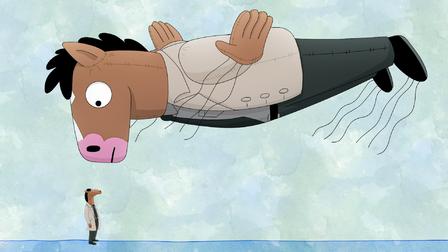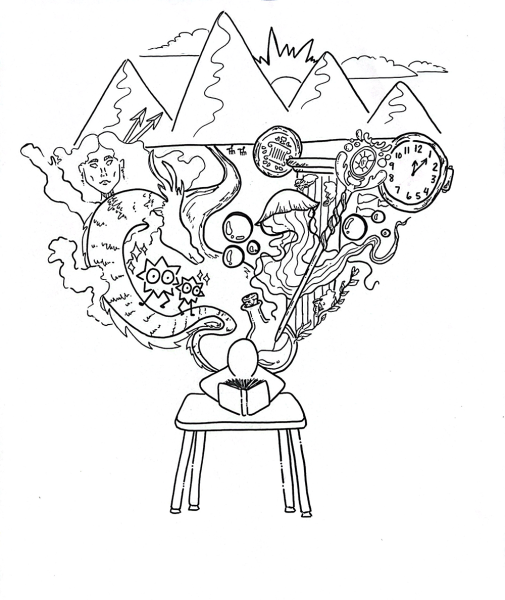Bojack Horseman Offers Edgy Humor and Surprising Social Commentary

BoJack Horseman offers what no other animated show can: a comedy that evokes questions about what we consider normal. Image source: Netflix.com
Bojack Horseman follows the episodic mishaps of BoJack Horseman and friends Diane Nguyen, Princess Carolyn, Todd Chavez and Mr. Peanutbutter on their wacky adventures in a fictionalized version of Hollywood.
BoJack Horseman—an anthropomorphic horse—is a washed-up, self-loathing, substance-abusing patriarchal actor.
Diane Nguyen, a human, is a misunderstood third-wave feminist writer from a Vietnamese-American family.
Princess Carolyn—an anthropomorphic pink Persian cat—is a successful agent, struggling to find balance between her work and personal life.
Todd Chavez is an asexual, easy-going slacker who always ends up in absurd situations.
Mr. Peanutbutter—an anthropomorphic Labrador Retriever—is an energetic and cheerful actor who yearns to find a stable marriage.
Place all these characters together in a fictional world where anthropomorphic animals and humans live side by side, and you have the premise of the show.
Season 5 builds upon the strengths of the previous seasons: ingenious comedy representing the struggle between self-destruction and success. Each episode builds upon the show’s unknowns, giving closure on previous questions while introducing new ones. This cycle of certainty and uncertainty leaves viewers on the edge in this comedy-drama.
While maintaining the same formula as previous seasons, season 5 puts a greater emphasis on the drama: past mistakes come back to haunt BoJack, Diane and Mr. Peanutbutter suffer the repercussions of a failed marriage, Todd feels the societal pressures of being asexual and Princess Carolyn desperately wants to find a baby to call her own.
But the show remains rooted in comedy—which is usually obscene, with adult themes such as substance abuse as well as sex and violence appearing regularly. In one scene, Todd’s homemade sex robot becomes CEO of WhatTimeIsItRightNow.com. In another scene, BoJack, a notorious sexist, proclaims himself a feminist.
However, the show’s obscenities don’t detract from its intricate comedy and human-focused messages. With every offensive action comes repercussions.
For example, BoJack—following an injury—gets addicted to painkillers, leading to a severe addiction where he loses touch with reality. In his drug-fueled haze, he nearly strangles his co-star/girlfriend Gina Cazador to death.
The following episode makes is clear that BoJack has to pay for his crime as he lives with yet another life regret, another burden on his already tormented mind. BoJack’s long-dead ex-friend Herb Kazzaz summed it up perfectly before his death:
“You have to live with the sh*** thing you did for the rest of your life. You have to know that it’s never, ever going to be okay.”
Besides, the comedy’s more than pure shock value; the show’s anthropomorphic animals possess the characteristics of their animal: Mr. Peanutbutter gets excited when someone’s at the door or throws a tennis ball into another room; Princess Carolyn always “lands on her feet,” both figuratively and literally; and BoJack’s old friend Cuddlywhiskers—a hamster—uses a hamster wheel in place of a treadmill.
An adult animation series is the last place one might expect to find a compelling drama that questions our struggle for self-worth—much less challenging societal norms. Nonetheless, BoJack Horseman offers what no other animated show can: a comedy that evokes questions about what we consider normal. Comedy and drama work in tandem, creating an intriguing experience that seems to leave you wanting more.
Season 5 is arguably the epitome of what the show represents. While less comic compared to other seasons, the drama more than makes up for it, offering the most intense, drama-packed experience yet. As such, I give this season my overwhelming recommendation to watch.

Tyler Pohlman has been writing for The Beachcomber since the fall of 2016. He has written several in-depth features and editorials about issues that affect...











